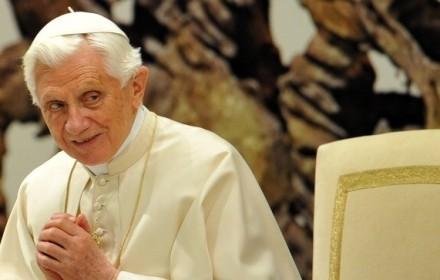By Laurie Penny
New Statesman
December 7, 2011
http://www.newstatesman.com/blogs/laurie-penny/2011/12/child-abuse-within-home
 |
It has to be a bad day for the ethical health of the species when we are taking lessons in child welfare from the Catholic Church. Speaking to an audience of US bishops in a week when the US just happened to be embroiled in a scandal involving the possible cover-up of child sex-abuse at Syracuse University and Penn State College, the Pope took pains to remind the faithful - and anyone else who might be listening - that the Catholic church was not the only institution whose members have turned a blind eye to the rape and abuse of prepubescents in its care.
"Just as the church is rightly held to exacting standards in this regard, all other institutions, without exception, should be held to the same standards," said Joseph Ratzinger, conveying a rather tasteless undertone of relief to the church's statement of official repulsion.
Ratzinger, nonetheless, is technically correct. Child abuse is a social disease that contemporary culture has barely begun to address. It extends far beyond the institutional reach of the Vatican, American college sports, or the organised gangs of predatory paedophiles on whom the British government is orchestrating a welcome crackdown.
Child abuse is far from an institutional phenomenon. Eighty per cent of child sexabuse takes place within the home, and most of it is perpetrated by parents, close relatives and family friends. In 2010/11, more than 17,000 sexual crimes against children under 16 were recorded in England and Wales - a third of all recorded sexual crime - and this statistic represents only those cases that were brought to the attention of the police. A
large proportion of young victims choose not to speak about or report their abuse, sometimes for many years. This may be for the same reasons that lie behind our hesitancy as a culture to speak and write about such abuse: shame and fear that we will be disbelieved and, above all, a confusion about how to confront cruelty when it occurs within the family - the very structure that is supposed to be the bedrock of love, support and
social cohesion. That is the one institution no politician has yet been brave enough to challenge.
Home truths
The abuse of children within the home is something that society has yet to tackle adequately. There are plenty of resources available for survivors,
particularly those who can afford therapy. Search online for "child abuse" and you will find endless web pages in soothing pastels where victims share their stories of suffering; wander into any chain bookshop and you will encounter shelves devoted to books with soft sepia pictures of weeping children and titles like Please, Daddy, No.
Child abuse is still approached, largely, as something for victims to grow up and get over, rather than as a systemic social ill that requires a political response. For all the appropriate public consternation over paedophile priests, seedy sports coaches and shadowy child-porn rings, we are as far as we ever have been from accepting on a broader level that the abuse of vulnerable young people is not something that can be allowed to continue, even behind closed doors, even within families who love one another.
Any original material on these pages is copyright © BishopAccountability.org 2004. Reproduce freely with attribution.